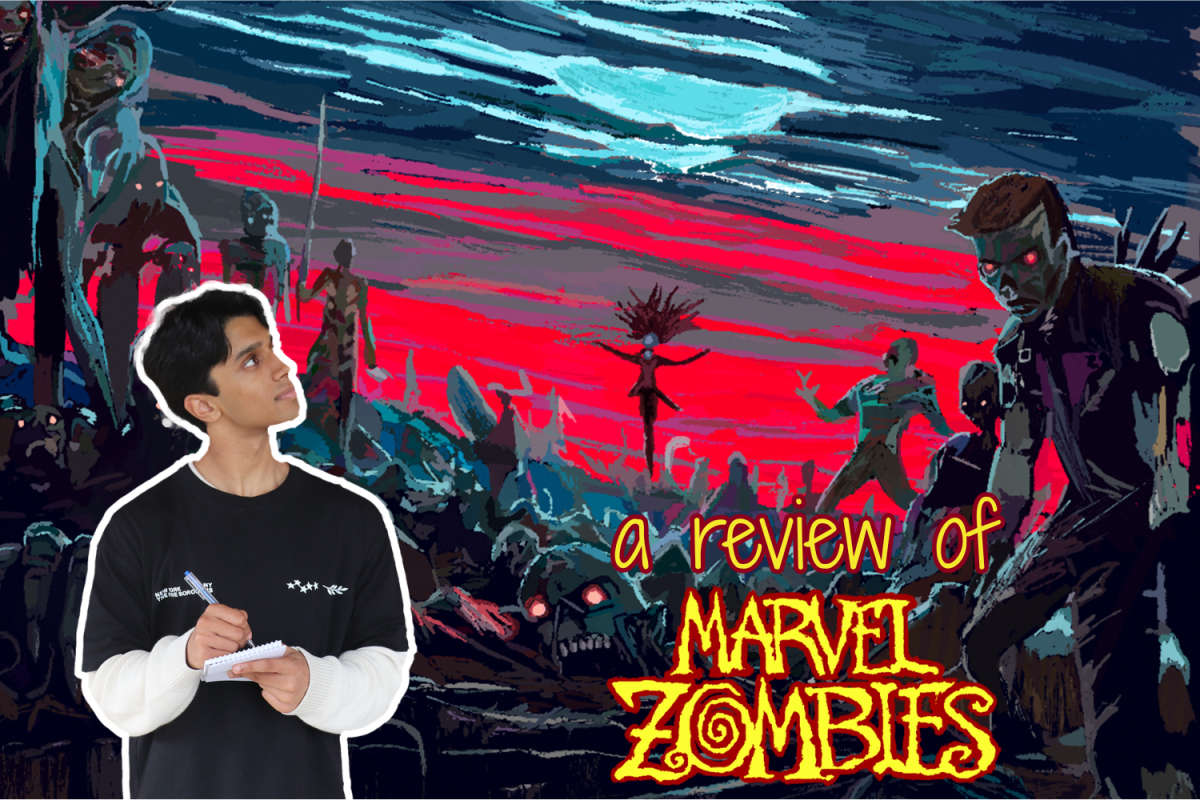In a joyful shift from his more melancholy works, pop musician Ed Sheeran added his eighth album, “Play,” to his discography on Sept. 12. This new release comes after a period of hardship in Sheeran’s life, during which his wife struggled with a tumor but has since recovered. While overall jovial, the album was another example of Sheeran’s preference to play it safe, boring listeners with his lyrical choices in an album that ultimately fell flat.
Though few, some tracks do stand out from the collection’s generally uniform sound. “Azizam,” the album’s most-streamed song, was the most engaging to listen to due to its unique note progressions and summery energy. “Symmetry” opens with Hindi vocals and incorporates Bollywood and other Asian influences into its danceable beat, providing a welcome distinction from the album’s otherwise unvaried instrumentation.
Aside from “Azizam,” most of the album falls flat because of its repetitive chord progressions and monotonous pacing. Songs like “Old Phone” and “Don’t Look Down” rely heavily on the same musical phrases throughout, while tracks such as “Camera” and “In Other Words” ride on similar chords and progressions to contemporary Christian worship music.
“Old Phone” has blunt lyrics like “I charged the battery again” and “messages from all my exes.” There is no lyrical flow, and the words sound more like casual thoughts spoken out loud. Lines such as “conversations with my dead friends” lack any unique imagery or wordplay, leaving the song sounding brilliantly uncreative. It does not help that none of Play’s instrumentals are particularly attention-grabbing.
The album’s final track, “Heaven,” is clearly for Sheeran’s wife and her recovery, speaking of their renewed love after hardship. The backtrack does feel romantic, but the lyrics themselves are repetitive. Most of it centers around the repeated lyrics, “falling in love again,” and the metaphors are cliché. The references to “clay to porcelain,” a classic metaphor for change over time, or “chemicals bursting,” which uses the obvious comparison of love as a big feeling and an explosion, are uninspired ways to describe a rekindling of old affections.
While most critics have had positive reactions to “Play,” Sheeran’s album feels disappointingly safe. By relying on familiar guitar instrumentals and conventional lyrical metaphors, he ends up with a collection of songs that are comfortable but certainly skippable.
“Play” represents an album that dances within Sheeran’s strengths while failing to distinguish itself from the rest of his discography and other pop music in general. His formulaic approach to music left this album feeling pleasant, yet ultimately unremarkable.
Rating: 2 Viking helmets out of 5




































































